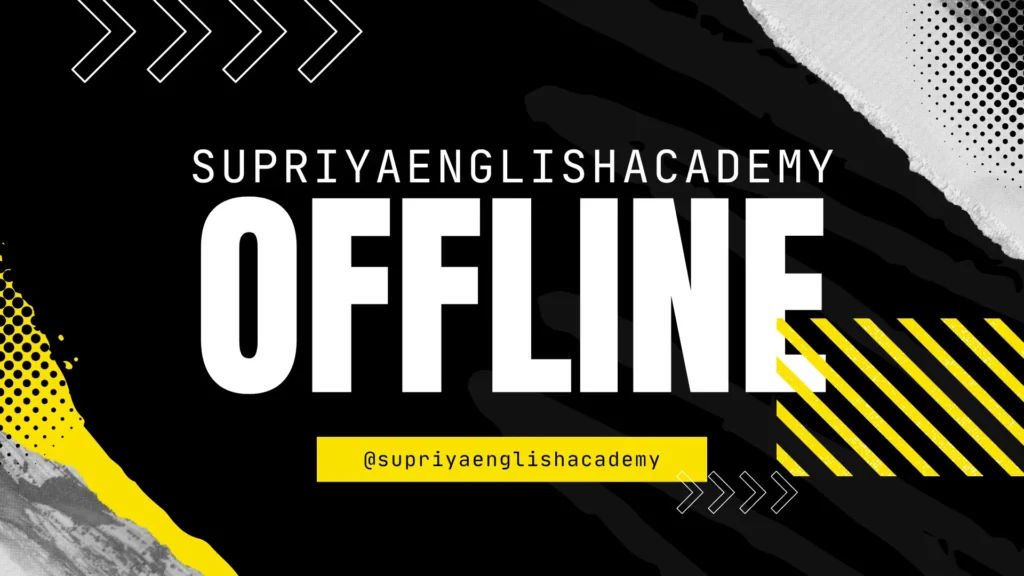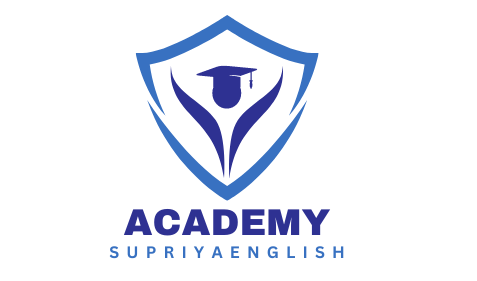
For three decades, Supriya English Academy has stood as a beacon of learning in Uttam Nagar. With a team of dedicated tutors boasting extensive experience and qualifications, the academy serves students from 1st to 10th grade. Specialized attention is given to subjects like English, Social Science, and IELTS preparation. Through face-to-face interactions at the center, students receive personalized guidance, fostering an environment where questions are encouraged and answered with care. This approach creates a supportive and engaging atmosphere, making learning a seamless and enjoyable experience. Supriya English Academy is committed to providing top-notch education, equipping students with the skills and knowledge they need to excel both in academics and beyond.
The Role of Offline Tuitions in Academic Success
In the realm of education, offline tuitions have long been a cornerstone of academic support and enrichment. While online learning has gained prominence in recent years, offline tuitions continue to play a vital role in supplementing traditional classroom education. In this comprehensive exploration, we delve into the enduring value of offline tuitions, examining their benefits, challenges, and impact on students’ academic journey.
At Supriya English Academy, we prioritize delivering a comprehensive learning experience tailored to the diverse needs of our students. This commitment is reflected in our approach of offering both online and offline classes. While online classes bring convenience and flexibility, offline classes offer invaluable benefits such as face-to-face interactions and direct engagement with our experienced teachers.Conveniently situated near Radha Swami Vaishno Dhaba, Uttam Nagar East, Uttam Nagar-110059, our institute provides a conducive environment where students can thrive academically. Our offline classes facilitate real-time interaction between students and teachers, fostering a supportive learning atmosphere where students feel comfortable asking questions and seeking assistance. This direct engagement enables students to actively participate in discussions and engage with course material more effectively.
One of the key advantages of offline classes is the immediate feedback students receive from their teachers. In a face-to-face setting, teachers can assess students’ understanding of the material in real-time and provide timely feedback to address any misconceptions or areas of difficulty. This feedback loop is instrumental in facilitating the learning process and ensuring that students stay on track with their academic progress.Moreover, offline classes facilitate dynamic discussions and collaborative learning experiences among students and teachers. Through meaningful dialogue and interaction, students have the opportunity to share their perspectives, ask questions, and collaborate with their peers. These interactions not only deepen students’ understanding of the subject matter but also foster critical thinking and communication skills.
Our experienced teachers are dedicated to providing personalized attention to each student, ensuring that they receive the guidance and support needed to excel academically. In the offline classroom setting, teachers are readily available to address students’ queries, provide additional explanations, and offer encouragement. This individualized approach to teaching helps create a supportive learning environment where students feel motivated to succeed.

Benefits of Offline Tuitions:
Personalized Attention: One of the primary advantages of offline tuitions is the personalized attention students receive from tutors. In small group settings or one-on-one sessions, tutors can tailor their teaching approach to cater to the individual learning needs of each student, addressing specific areas of weakness and providing targeted support.
Reinforcement of Concepts: Offline tuitions offer students the opportunity to reinforce concepts learned in the classroom through additional practice and review. Tutors can provide supplementary materials, worksheets, and exercises to help students solidify their understanding of key concepts and overcome challenges.
Exam Preparation: Offline tuitions play a crucial role in exam preparation, equipping students with the necessary skills, strategies, and resources to excel in their academic assessments. Tutors often focus on exam-specific content, provide practice tests, and offer guidance on effective study techniques, thereby enhancing students’ confidence and performance on exams.
Enhanced Motivation and Engagement: The small group setting of offline tuitions fosters a collaborative and supportive learning environment, encouraging active participation and engagement among students. Tutors can employ interactive teaching methods, facilitate discussions, and organize educational activities to make learning more engaging and enjoyable for students.
Mentorship and Guidance: Beyond academic support, offline tuitions offer students mentorship and guidance from experienced tutors. Tutors serve as role models, mentors, and academic advisors, offering valuable insights, advice, and encouragement to help students navigate their educational journey and achieve their academic goals.


Challenges of Offline Tuitions:
Despite their numerous benefits, offline tuitions also face several challenges that can impact their effectiveness and accessibility. These challenges include:
Accessibility and Affordability: Not all students have access to offline tuition centers or the financial means to afford private tutoring services. This lack of accessibility can create disparities in educational opportunities and exacerbate inequalities in academic achievement.
Time Constraints: Balancing school, extracurricular activities, and offline tuitions can be challenging for students, leading to time constraints and academic pressure. Some students may struggle to manage their time effectively, resulting in stress and burnout.
Quality of Instruction: The quality of instruction in offline tuitions can vary depending on the expertise and experience of the tutors. While some tutors may be highly qualified and effective educators, others may lack the necessary skills or knowledge to provide quality instruction.
Dependency on Tutors: In some cases, students may become overly dependent on their tutors for academic support, relying on them to provide solutions instead of developing independent problem-solving skills. This dependency can hinder students’ ability to think critically and solve problems on their own.
Lack of Individualized Attention: In larger group settings, students may not receive the same level of individualized attention and support as they would in one-on-one or small group tutoring sessions. This can limit the effectiveness of offline tuitions in addressing the unique learning needs of each student.
Impact of Offline Tuitions: Despite these challenges, offline tuitions continue to have a significant impact on students’ academic success and personal development. They provide a valuable supplement to traditional classroom education, offering students personalized attention, reinforcement of concepts, exam preparation, and mentorship. Moreover, offline tuitions play a crucial role in building students’ confidence, motivation, and study skills, empowering them to achieve their academic goals and excel in their studies.
Conclusion: In conclusion, offline tuitions remain an invaluable component of the educational landscape, offering personalized attention, academic support, and mentorship to students. While online learning platforms have gained traction in recent years, offline tuitions continue to complement traditional classroom education and enhance students’ academic success. Despite challenges related to accessibility, affordability, and quality of instruction, offline tuitions provide students with a supportive learning environment where they can thrive academically and develop essential skills for success. As we navigate the evolving landscape of education, offline tuitions will undoubtedly continue to make a meaningful impact on students’ lives and contribute to their lifelong learning journey.
